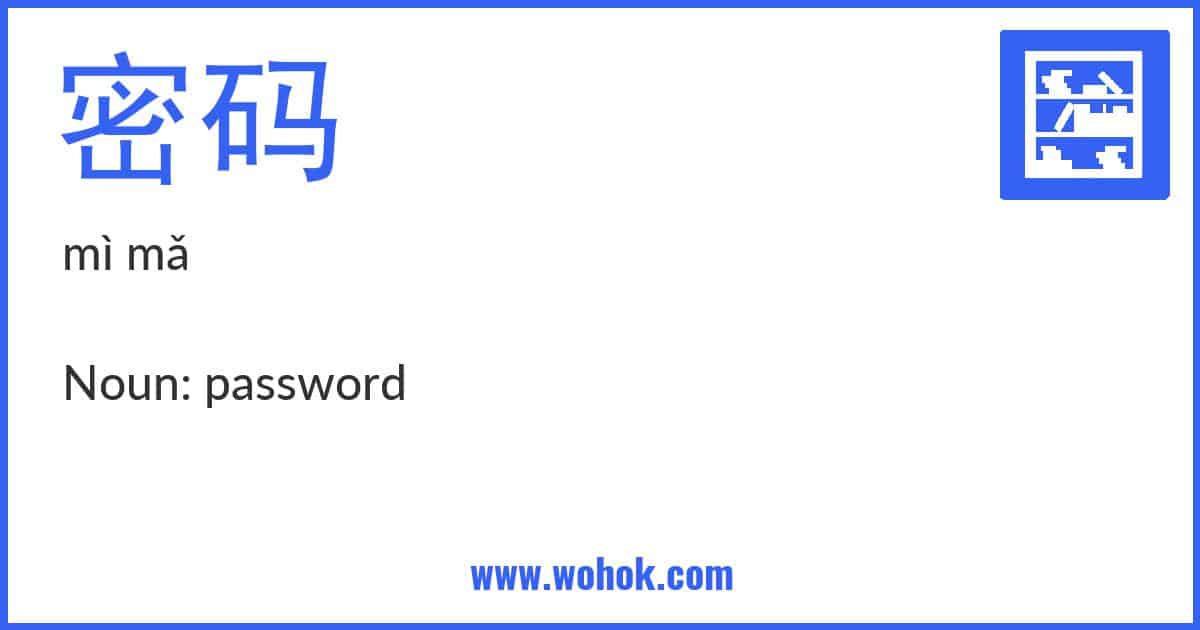The Chinese word “密码” means “password” in English. It is commonly used in the context of online security and digital authentication, where users are required to input a secret combination of characters to access their accounts or protect their sensitive information. In China, “密码” is also used to refer to the code used to encrypt messages or data, making it more difficult for unauthorized parties to access or decipher them.
Translation
Noun: password
Pronunciation
Example Sentences
| Chinese | Pinyin | Engish |
|---|---|---|
| 我忘了我的邮箱密码 | wǒ wàng le wǒ de yóu xiāng mì mǎ | I forgot my email password |
| 他的银行账户密码很容易猜到 | tā de yín háng zhàng hù mì mǎ hěn róng yì cāi dào | His bank account password is very easy to guess |
| 请不要告诉任何人你的WiFi密码 | qǐng bù yào gào sù rèn hé rén nǐ de wifi mì mǎ | Please don’t tell anyone your WiFi password |
| 我们需要设置一个更强的密码来保护我们的隐私 | wǒ men xū yào shè zhì yī gè gèng qiáng de mì mǎ lái bǎo hù wǒ men de yǐn sī | We need to set a stronger password to protect our privacy |
| 他们要求我输入我的账户密码才能登录 | tā men yāo qiú wǒ shū rù wǒ de zhàng hù mì mǎ cái néng dēng lù | They asked me to enter my account password to log in |
| 为了安全起见,我们定期更改密码 | wèi le ān quán qǐ jiàn, wǒ men dìng qī gēng gǎi mì mǎ | For security reasons, we regularly change our passwords |
| 我们必须保护我们的密码不被盗取 | wǒ men bì xū bǎo hù wǒ men de mì mǎ bù bèi dào qǔ | We must protect our passwords from being stolen |
HSK
密码 is part of HSK Level 4 in both HSK 2.0 and HSK 3.0.
Learning Card


